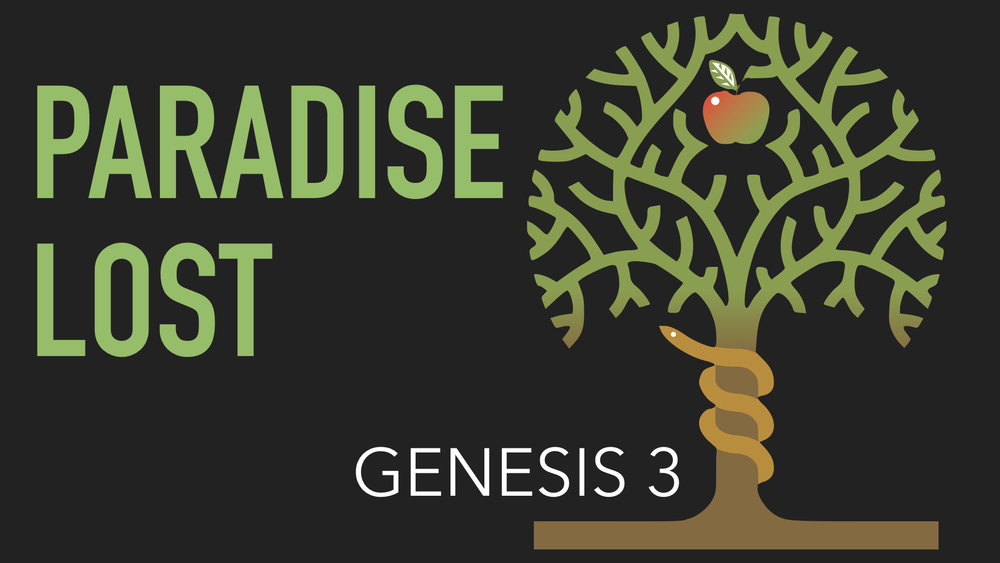Last week our discussion took us through the differentiation of woman. This week we will begin our descent into the Fall. Please read Genesis 2:25-3:7.
Shame:
Our reading this week begins and ends with shame. Immediately after the differentiation of the sexes, Genesis tells us that “the two of them were naked, the man and his wife, yet they felt no shame.” However, immediately upon eating of the fruit of the Tree of Knowledge of Good and Evil, “the eyes of both were opened and they knew that they were naked; and they sewed fig leaves together and made loincloths.”
Within this part of the story, the only thing that changes about the two people is their knowledge of who they are. They were naked and unashamed, but now they know they are naked and they are ashamed. There is no indication in these verses or elsewhere in Chapter 3, that Adam and Eve feel guilty for their transgression. Rather, they feel ashamed. Their shame arises not for what they did but for who they are.
There is a difference between guilt and shame. Guilt is about what I have done whereas shame is about who I am. Guilt is about an act, whereas shame is about our very being. By obtaining the knowledge of good and evil, the two people now realize their condition and the condition of the world in which they live. According to the Biblical narrative, nothing had really changed about them except their knowledge of who they are. This causes their shame.
Ashamed of Nudity and Sex:
The question is what are the husband and wife ashamed of? The more traditional answer is simply nudity or sex. They realize that they were naked and physically exposed. Their unpresentable parts (1 Cor.12:23) and presented. We can see this sense of nudity and shame emerge in children. Two-year-olds generally are not ashamed of being nude, but four-year-olds generally are. And, throughout Scripture, sex and nakedness are often equated. (See, Lev. 18).
However, there is only a weak connection between knowledge and sex in the story itself. The prohibition on eating comes about before the sexual differentiation when the person was only one person without a companion and before the formation of any other living thing. Sex does not fit within the prohibition. Additionally, the consequence of eating of the fruit is death, not anything sexual.
Ashamed of Life:
A deeper reading of the text, however, demonstrates that the shame arises from the human condition of not being God, and particularly of being mortal. Think about the first humans’ state of mind and frame of reference. They live in blissful ignorance. (Eccl. 1:18). Their only frame of reference for existence is the Lord God and the perfection of Eden. They do not know anything else. They possess the capacity of error – the woman misquotes God (compare 3:3 and 2:17) – and the capacity for disobedience. They are made of clay and their continued existence depends upon God’s continued breath within them (Ps. 104:29). In all things, however, they do not have the consciousness to understand.
They thought the world existed and worked in a certain way, but now they know differently. They now see that the world is complicated. They understand that creatures work against God, that vipers lie, and that they are nothing but naked and exposed animated clay. This knowledge brings shame.
Ashamed of Death:
In Genesis 2:17, God said that “in the day that you eat of the (the fruit) you shall die.” They eat of the fruit, but they do not die. (Adam makes it to 930 years. (Gen. 5:5)) Rather, it is at this moment that they become conscious of their mortality. Genesis specifically links knowledge with mortality. Once the humans eat of the fruit of the Tree of Knowledge, they know that they are mortal and are not God. They know that life is precarious and they will die (unless they eat of the Fruit of the Tree of Life). They are now intimately aware that they are substantively different than the Lord God. The esteem that they once held themselves in, is now gone and they seek to cover themselves.
Our Shame:
The Genesis story is not history but the story of us. Think about those times in your life when the curtain has been pulled back and life is not as it seems. When is innocence lost? This can be the realization as a child that your parents are not perfect or when Mr. Smith goes to Washington. Throughout our lives, knowledge is gained, innocence is lost, and shame arises from the transformation.
More specifically, think about your conscious realization of your precarious and mortal existence. There is an inherent shame in knowing that we are but animated clay, not God. Think of the ways that we devise to cover up this shame and hide from our knowledge Remember, it is the man and woman by themselves who seek to solve the problem they have fallen into.
Knowledge and shame, however, are not the end of our story. Rather, they simply describe our present human condition. The Fall is our starting point. The rest of Scripture will begin to show us our available options.
Dinner is at 6:30. The menu is Hungarian goulash. Discussion about 7:15 ending with Compline.
The Lord God will swallow up death forever, and he will wipe away tears from all faces, and the reproach of his people he will take away from all the earth; for the Lord has spoken.
Isaiah 25:8


Pingback: 2 Peter 1:1-4, Theosis – Ancient Anglican